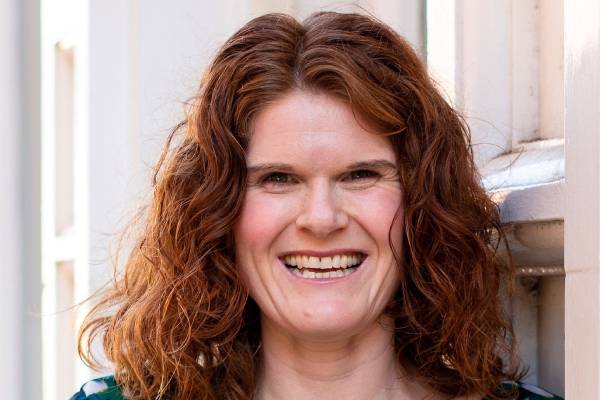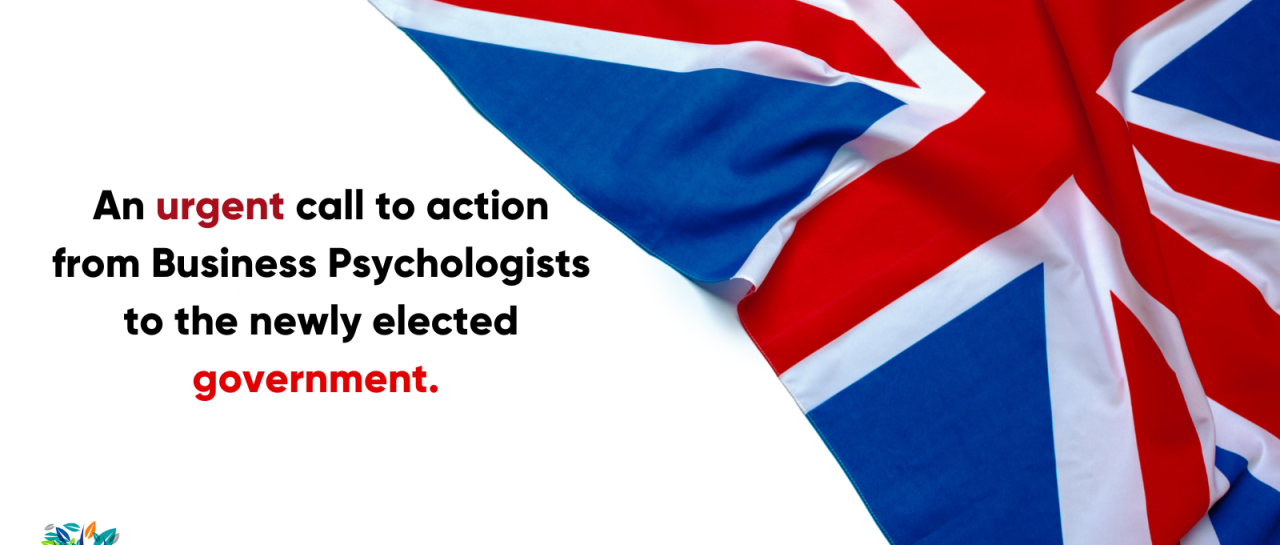Authored by Certified Business Psychologist Laura Howard. Certified Business Psychologist, Laura Howard, reflects on the webinar she recently delivered to ABP members. Below she outlines the main findings of her published research uncovering systematic barriers women face when being authentic as leaders. Importantly, she gives…


Gonzalo Lopez – Personal Profile
How would you describe what you do?
The short answer would be “translating psychology into simple and practical applications“. The slightly longer one: I currently work as a Senior Consultant at BVA Nudge Unit UK, where we specialise in applied behavioural science. I like to use the short version because we all have heard the words ‘behavioural economics’ or ‘behavioural change’ thrown around as a catchall term in the last few years. From user experience, basic user interface design principles, cleverly written sets of instructions, up to choice architecture and country-wide behaviour change programs. Underneath it all, behavioural science – and myself – take principles that social psychology has developed over the last 70 years and transform them into applicable optimisations to communications, processes and decisions.
What was your first role as a business psychology practitioner?
My first role was in a large Chilean bank, working as a Training and Development analyst. I was fresh from Psychology undergrad, and one of my lecturers advised me to find work in a big company. His rationale was that the larger a company is, the more HR subsystems I’ll get to see. And even more important, the busier I get to be, the more I get to learn. He was absolutely right; although it wasn’t necessarily the most exciting job at first, there was a lot of work to do. Learning how to manage a high workload, allowed me to hone my planning and MS Excel skills, which I still use every day. Quick tip for everyone: all companies run on Excel, so it pays to master it!
What has been your greatest role or achievement so far?
Grabbing my bags and coming to London in pursuit of my Masters. The experience helped me learn how to cope in a different culture, which ended up opening all the right doors. Not pandering to my employer, but my current role is exactly what I wanted to do since I landed in London. It also led to the ABP, allowing me to leave a positive mark in the conference for the last three years.
What has been your biggest challenge as a business psychology practitioner?
Making science sexy! Since my first role, I’ve found that evidence-based practices tend to lose when paired against “We have always done it this way”, “I was taught to do it that way“, or my favourite “We are too busy to read“. The reality is no one is safe from experiencing this. We are indeed busy and struggle to access the latest research: either because of paywalls or how opaque academic papers can be. If an industry could benefit from making things easy to read, it’s academia. However, using evidence to back decisions is essential to deliver honest and useful solutions while delivering on the ROI promise.
Which advice has helped you the most?
It would be to “put yourself out there” and “sing your praises”. Unlike some blessed individuals, I’m not naturally drawn to networking or talk about what I’ve done well in the past. Unfortunately, if nobody knows you and they are unaware of what you can do, it will be tough to get your dream job. This became painfully true when I moved to London, where the market is highly competitive. Being ‘another foreign student with a Masters’ was not enough to cut through the noise. Early on, I decided to put myself out there by working with others: a paid literature review here, some freelancing there, and volunteering at the ABP. Thanks to the latter, I had a coffee that led to the fantastic job I have now.
If not business psychology, what would you love to do?
Something related to computer science, AI or automation. I enjoy taking processes and making them more efficient, something that technology excels at. I believe that we should hand off to tech all the repetitive tasks where we don’t add value. This approach is excellent for personal productivity and it allows people to focus on things they genuinely care about; creativity, innovation, and interaction with others. Of course, we have also seen the dark side of automation and how dehumanising it could be (e.g. Amazon warehouse workers), but I think that it can be fantastic when it is not overdone. That’s definitely something I would work on if I wasn’t a business psychologist.
How do you spend your spare time?
I have been successful at keeping a good work-life balance over the past ten years. That means that I have had plenty of time to binge-watch all of Netflix, geek out in VR, do a bit of jogging, go to the pub with friends and travel (remember doing those?). Until November 2020, my spare time also included plenty of ABP Conference work: good fun and very fulfilling.
Who do you most admire, and why?
Our industry is not short of amazing people. I’ve had the opportunity to work and meet many. However, the path that led me to work in applied behavioural science started in 2011, and it’s all due to Stephen Dubner, the radio host of Freakonomics Radio podcast. I think one of the most challenging tasks is to be a good science communicator. We need to get evidence-based thinking and practices across. People like Stephen are fantastic at introducing and simplifying important scientific concepts for everyone. The same can be said about current and former RadioLab hosts Jad Abumrad and Robert Krulwich. When someone can describe a study and make you feel strong emotions, that’s when you know they are doing a great job, and we need more of that in our field.
What achievements were you most proud of as a member of the ABP Board?
ABP Conference 2018, ABP Conference 2019 and ABP Conference 2020! Especially last year, when we had to throw 2019’s conference playbook out the window and rethink our entire approach six months before the conference. It was challenging and stressful at times, but I worked with a great team that made it one of the best (online) conferences so far. Reading all of the lovely messages we got from delegates was the cherry on top.
What, for you, does the future of business psychology looks like?
Two things: tech & data. We have heard this since the 1990’s probably. Still, all the significant changes to our society have and will come from technology: social media, self-driving cars, workplace automation, virtual reality, AI assistants, the list goes on. If we are not having a say and react after tech is implemented, we will be failing as practitioners. Our own Anthon Fishman had a fantastic session about all of this at our last conference.
Music Choice of the Day:
The Mowgli’s – I’m Good. A good pick-me-up song when the Pandemic blues hit you. Warning: it’s like drinking a really sugary soda – consume in moderation.



